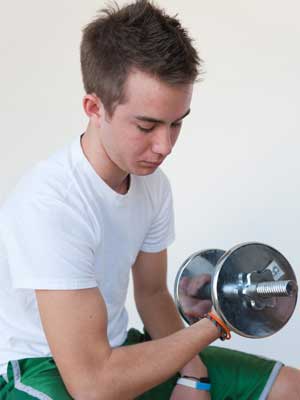A rising trend among teens is leaving both health experts and parents concerned. According to the 2025 Eating and Activity in Teens Study – a population-based analysis of diet, physical activity, and weight control behaviors among adolescents in Minnesota – teen boys and girls may be using protein shakes and other muscle-enhancing supplements to bulk up now more than ever. 
As reported by Med Page Today, the self-reported study involved nearly 2,800 students with an average age of 14. Approximately 53% were female, 46% were male, and 60% played at least one after-school sport.
The study found that 35% of adolescents who participated admitted to using protein powders and shakes, 6% admitted to using steroids, and nearly 11% reported using some other muscle-enhancing supplement. In addition, it was found that boys were more likely to engage in both of these behaviors than girls.
Researchers at the University of Minnesota in Minneapolis speculated why this trend has surfaced among young boys, especially considering body image issues are typically more common among girls.
“Boys’ body dissatisfaction has simultaneously increased, and research has demonstrated that exposure to images of extremely muscular models contributes to body dissatisfaction and muscle dysmorphia in young men,” they wrote.
The study also found that the use of muscle-enhancing products or behaviors to gain muscle were “significantly associated” with grade level, BMI, Asian race, and sports involvement.
Authors of the study considered “muscle-enhancing behaviors” to be the use of protein powders or shakes, steroids or other muscle-building substances like creatine, amino acids, or growth hormones, all of which were considered “unhealthy” behaviors. “Healthy” behaviors included altered eating patterns and increased exercise.
According to Diets in Review’s registered dietitian Mary Hartley, RD, a high protein diet is usually safe for teens. However, extra protein doesn’t do much in the way of building muscle. “You need to meet your calorie requirements with enough carbohydrate to spare protein from being used for energy. Most athletes get all protein they need from their regular meals,” she said. “They don’t need protein supplements.”
Mary speculates that taking protein supplements at a young age doesn’t do much harm to the developing body. However, she is concerned with the psychology-related problems it may have, especially body dissatisfaction and muscle dysmorphia; as well as the 6% that reported steroid use and the 10.5% that use other muscle-enhancing substances.
“Manipulating the diet for no good reason denies the opportunity to practice sensible eating habits,” said Mary, adding that excess protein may tax the kidneys and drag out a significant amount of water as well. “As long as a person is well-hydrated and their diet is otherwise balanced, excess protein isn’t likely to do much harm,” she said.
Jeff Boone is the defensive coordinator at Independent School in Wichita, Kansas and is also concerned about students using muscle-enhancement supplements at such a young age, especially since kids probably haven’t consulted a doctor or trainer before starting usage. “This is one of my bigger concerns about the use of even the ‘legal’ products,” he said. “They may be using too much at the wrong time and, even worse, using them as a meal substitute.”
Boone speculates that part of the allure of the supplements is the impression that it will make things happen faster. And while some may gain weight as a result, it’s likely not be the kind of weight you want. “The body needs balanced inputs, especially when it’s still growing during your teenage years,” he said, noting that kids need to exercise patience and let their bodies develop naturally as they mature.
As for sources of pressure, Boone believes that although coaches and parents may be to blame in some instances, it’s usually the pressure that comes from peer groups, such as other players or students. “If a kid decides his self worth is going to be tied into being more buff, he’ll do what he thinks it takes to achieve it,” he said.
As a coach himself, Boone hasn’t noticed any concerning behaviors among his players as of yet, although he acknowledges such activity may be happening when students are out of his sight. To make his stance on substances clear, however, he openly discourages steroid use and cautions his players to consult a physician before using protein supplements.
For teen athletes looking to gain strength, Boone recommends focusing on diet first. For an idea of a proper calorie range, Mary estimates that a male teen athlete around 6 feet tall needs approximately 3,000 calories and 110 grams of protein a day; although a reasonable protein range might be between 75-250 grams.
Boone also stresses the importance of proper training over supplement use. “You can’t just go into a weight room, do a few lifts and ‘bam,’ get bigger, stronger and faster,” he said. “You have develop a routine that has variance in it and stick to it.”
Also Read:
Prom Can Lead to Fad Dieting for Weight Loss

